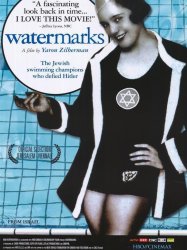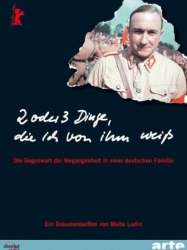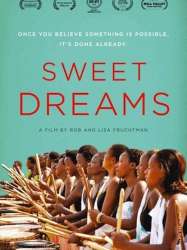Too Colourful for the League is a canadien film of genre Documentary
Too Colourful for the League (2001)

If you like this film, let us know!
- Infos
- Casting
- Technical infos
- Photos
- Videos
- Film quotes
- Characters
- Music
- Awards
Length 52minutes
OriginCanada
Genres Documentary
Themes Films about racism, Sports films, Documentary films about sports, Ice hockey films, Documentary films about racism, Documentary films about law, Documentaire sur une personnalité
Rating63%










Too Colourful for the League is a 52-minutes 2001 Canadian documentary film made for CBC-TV, directed by Daniel Cross and Mila Aung-Thwin and produced by Diversus Productions. The film was produced by Evan Beloff, Ari Cohen and Max Wallace, who were nominated for a Gemini Award for best documentary. It was written by Max Wallace and co-produced by Daniel Cross.
This documentary examines the struggle of blacks in hockey in Canada from the 1930s to the present day telling the story of black players' courage and determination to play in a white-dominated sport. It focuses on an effort by former Montreal citizenship judge Richard Lord to nominate legendary black hockey player Herb Carnegie into the Hockey Hall of Fame. During the 1940s, Carnegie was widely acknowledged as one of the best hockey players in the world, playing alongside Jean Beliveau for the Quebec Aces. Yet he never was allowed to play in the NHL because of a long-time color barrier, which was only broken a decade later by Willie O'Ree of the Boston Bruins. In the film, veteran Hockey Hall of Fame referee Red Storey recalls watching Carnegie try out for Toronto Maple Leafs owner Conn Smythe. According to Storey, Smythe turned to him and said, "I'd give $10,000 to turn that boy white."
It was broadcast by CBC, CTV, CBC Newsworld and Canal Plus.
Comments
Leave comment :
Suggestions of similar film to Too Colourful for the League
There are 8969 with the same cinematographic genres, 7273 films with the same themes (including 0 films with the same 7 themes than Too Colourful for the League), to have finally 70 suggestions of similar films.If you liked Too Colourful for the League, you will probably like those similar films :
 , 1h20
, 1h20Origin USA
Genres Documentary
Themes Films about racism, Sports films, Documentary films about sports, Documentary films about racism, Documentary films about law, Documentaire sur une personnalité
Rating1%





Le 13 février 1993, la star du basket-ball de Bethel High School, Allen Iverson, est entrée dans un bowling de Hampton, en Virginie, avec plusieurs camarades de classe. Censée être une soirée ordinaire, c'est devenu une nuit qui a changé la jeune vie d'Iverson. Une bagarre a rapidement éclaté entre les jeunes amis noirs d'Iverson et un groupe d'hommes blancs plus âgés. Les retombées de la rixe et le déroulement du procès qui a suivi ont conduit le meilleur athlète de lycée du pays en prison et ont fortement divisé la ville selon des critères raciaux...
 , 3h34
, 3h34Directed by Ken Burns
Origin USA
Genres Documentary
Themes Films about racism, Sports films, Martial arts films, Boxing films, Documentary films about sports, Documentary films about racism, Documentary films about law, Documentary films about historical events, Documentaire sur une personnalité, Le boxe anglaise
Actors Keith David, Samuel L. Jackson, Adam Arkin, Philip Bosco, Kevin Conway, Brian Cox
Rating82%






Watermarks (2004)
, 1h20Genres Documentary, Historical
Themes Films about racism, Films about religion, Sports films, Documentary films about sports, Documentary films about racism, Documentary films about law, Documentary films about historical events, Documentaire sur une personnalité, Documentary films about religion, Films about Jews and Judaism
Rating71%





L’Hakoah (« La force » en hébreu), fut fondé à Vienne en 1909, par réaction au célèbre paragraphe aryen qui interdisait aux clubs de sport autrichiens d’intégrer des athlètes juifs et devint l’un des plus grands clubs de sport de l’Europe de l’entre deux guerres. Dans les années 30, les plus grands succès de l’Hakoah furent remportés par ses nageuses, qui dominaient la compétition nationale en Autriche. Après l’Anschluss, les Nazis ont fait fermer le club. Les nageuses réussirent à fuir le pays avant que la guerre n’éclate, grâce à une opération de sauvetage organisée par les sportifs de l’Hakoah. 65 ans plus tard, 7 membres de l’équipe féminine de natation se retrouvent dans leur ancienne piscine à Vienne, un voyage qui évoque à la fois les souvenirs de leurs jeunes années, leur féminité affirmer et qui leur permet de renouer les liens de toute une vie.
 , 1h25
, 1h25Genres Drama, Documentary
Themes Films about families, Films about racism, Films about religion, Documentary films about racism, Documentary films about law, Documentary films about war, Documentary films about historical events, Documentaire sur une personnalité, Documentary films about religion, Political films, Films about Jews and Judaism, Documentary films about World War II
Rating72%





Malte's sister Barbel is shown defending her father and insisting that he could not have known the full truth about Auschwitz, that he tried to resist or subvert the Nazi's most inhumane policies, and that the victims of Auschwitz should be thought of as casualties of war. Malte also includes testimony from a member of a Jewish family in Slovakia whose house was expropriated by the Nazis in the early 1940s.

Origin USA
Genres Documentary
Themes Films set in Africa, Films about racism, Documentary films about racism, Documentary films about law, Documentaire sur une personnalité, Documentary films about politics, Political films
In the 1950s South Africans realized that their freedom struggle had to be built in four arenas of action: mass action, underground organization, armed struggle, and international mobilization. Have You Heard From Johannesburg takes viewers inside that last arena, the movement to mobilize worldwide citizen action to isolate the apartheid regime. Inspired by the courage and suffering of South Africa’s people as they fought back against the violence and oppression of racism, foreign solidarity groups, in cooperation with exiled South Africans, took up the anti-apartheid cause. Working against heavy odds, in a climate of apathy or even support for the governments of Hendrik Verwoerd, John Vorster and P.W. Botha, campaigners challenged their governments and powerful corporations in the West to face up to the immorality of their collaboration with apartheid.

Sweet Dreams (2012)
, 1h26Directed by Lisa Fruchtman
Origin USA
Genres Drama, Documentary, Historical, Musical
Themes Films set in Africa, Films about music and musicians, Films about racism, Documentary films about racism, Documentary films about law, Documentary films about war, Documentary films about historical events, Documentary films about music and musicians, Documentaire sur une personnalité, Documentary films about politics, Musical films, Political films
Rating76%






Besa: The Promise (2012)
Directed by Rachel Goslins
Genres Documentary
Themes Films about racism, Films about religion, Documentary films about racism, Documentary films about law, Documentary films about war, Documentary films about historical events, Documentaire sur une personnalité, Documentary films about religion, Political films, Films about Jews and Judaism, Documentary films about World War II
Rating77%






Goodbye Uncle Tom (1971)
, 2h20Directed by Francesco Prosperi, Gualtiero Jacopetti, Franco E. Prosperi
Origin Italie
Genres Drama, Documentary, Horror, Historical, Crime
Themes Films about slavery, Films about racism, Documentary films about racism, Documentary films about law, Documentary films about historical events, Documentaire sur une personnalité
Actors Gualtiero Jacopetti, Susan Hampshire, Franco E. Prosperi, Geoffrey Copleston
Rating65%





Le film a été tourné quelques années après Africa addio, à l'origine de polémiques idéologiques, dues à la description des difficultés en tous genres du continent africain après la fin du colonialisme européen.

Forget Us Not (2013)
Directed by Heather E. Connell
Origin USA
Genres Documentary
Themes Films about racism, Films about religion, Documentary films about racism, Documentary films about law, Documentary films about war, Documentary films about historical events, Documentaire sur une personnalité, Documentary films about religion, Political films, Films about Jews and Judaism, Documentary films about World War II
Actors Ron Perlman
Rating71%





Forget Us Not is a look at the persecution and death of the 5 million non Jewish victims of the World War II Holocaust, and the lives of those who survived including:

Genres Documentary
Themes Pregnancy films, Films about racism, Films about sexuality, Documentary films about racism, Documentary films about law, Documentaire sur une personnalité, Documentary films about health care
Rating76%





The title comes from the Swahili term "maafa," which means tragedy or disaster and is used to describe the centuries of global oppression of African people during slavery, apartheid and colonial rule, while the number "21" refers to an alleged maafa in the 21st century (though beginning in the 19th), which the film says is the disproportionately high rate of abortion among African Americans. The film states that abortion has reduced the black population in the United States by 25 percent. It discusses some of Planned Parenthood's origins (formerly the American Birth Control League), attributing to it a "150-year-old goal of exterminating the black population." It attacks Margaret Sanger, along with other birth control advocates, as a racist eugenicist. The film features conservative African Americans who are associated with the Tea Party movement, including politician Stephen Broden, and Martin Luther King, Jr.'s niece Alveda King, who claims that Sanger targeted black people.
 Connection
Connection